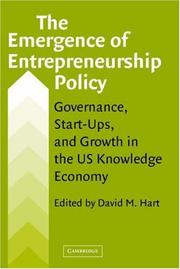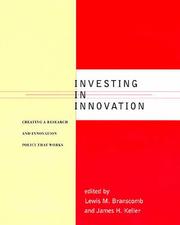| Listing 1 - 8 of 8 |
Sort by
|
Book
ISBN: 9780300166842 9780300209358 9780300167337 0300167334 0300166842 0300209355 Year: 2013 Publisher: New Haven London
Abstract | Keywords | Export | Availability | Bookmark
 Loading...
Loading...Choose an application
- Reference Manager
- EndNote
- RefWorks (Direct export to RefWorks)
Despite the recent ferocious public debate about belief, the concept most central to the discussion-God-frequently remains vaguely and obscurely described. Are those engaged in these arguments even talking about the same thing? In a wide-ranging response to this confusion, esteemed scholar David Bentley Hart pursues a clarification of how the word "God" functions in the world's great theistic faiths. Ranging broadly across Judaism, Christianity, Islam, Vedantic and Bhaktic Hinduism, Sikhism, and Buddhism, Hart explores how these great intellectual traditions treat humanity's knowledge of the divine mysteries. Constructing his argument around three principal metaphysical "moments"-being, consciousness, and bliss-the author demonstrates an essential continuity between our fundamental experience of reality and the ultimate reality to which that experience inevitably points. Thoroughly dismissing such blatant misconceptions as the deists' concept of God, as well as the fundamentalist view of the Bible as an objective historical record, Hart provides a welcome antidote to simplistic manifestoes. In doing so, he plumbs the depths of humanity's experience of the world as powerful evidence for the reality of God and captures the beauty and poetry of traditional reflection upon the divine.
Experience (Religion) --- God --- 291.1 --- Metaphysics --- Misotheism --- Theism --- 291.1 Godsdienstfilosofie --- Godsdienstfilosofie --- Religious experience --- Psychology, Religious --- God.

ISBN: 1107138094 0511062613 1280161477 0511121474 0511205937 0511297750 0511610130 0511071078 9780511121470 9780511062612 9780511071072 9780511610134 9780521826778 0521826772 9781280161476 9786610161478 661016147X 0521826772 9781107138094 9780511205934 9780511297755 9780521124188 0521124182 Year: 2003 Publisher: Cambridge, UK ; New York : Cambridge University Press,
Abstract | Keywords | Export | Availability | Bookmark
 Loading...
Loading...Choose an application
- Reference Manager
- EndNote
- RefWorks (Direct export to RefWorks)
This volume seeks to catalyze the emergence of a novel field of policy studies: entrepreneurship policy. Practical experience and academic research both point to the central role of entrepreneurs in the process of economic growth and to the importance of public policy in creating the conditions under which entrepreneurial companies can flourish. The contributors, who hail from the disciplines of economics, geography, history, law, management, and political science, seek to crystallize key findings and to stimulate debate about future opportunities for policy-makers and researchers in this area. The chapters include surveys of the economic, social, and cultural contexts for US entrepreneurship policy; assessments of regional efforts to link knowledge producers to new enterprises; explorations of policies that aim to foster entrepreneurship in under-represented communities; detailed analyses of three key industries (biotechnology, e-commerce, and telecommunications); and considerations of challenges in policy implementation.
High technology industries --- Entrepreneurship --- Knowledge management --- Management of knowledge assets --- Management --- Information technology --- Intellectual capital --- Organizational learning --- Entrepreneur --- Intrapreneur --- Capitalism --- Business incubators --- Industries --- Government policy --- Business, Economy and Management --- Economics
Book
ISBN: 1282352660 9786612352669 0300155646 9780300155648 0300111908 9780300111903 9781282352667 6612352663 Year: 2009 Publisher: New Haven Yale University Press
Abstract | Keywords | Export | Availability | Bookmark
 Loading...
Loading...Choose an application
- Reference Manager
- EndNote
- RefWorks (Direct export to RefWorks)
In this provocative book one of the most brilliant scholars of religion today dismantles distorted religious "histories" offered up by Christopher Hitchens, Richard Dawkins, and other contemporary critics of religion and advocates of atheism. David Bentley Hart provides a bold correction of the New Atheists's misrepresentations of the Christian past, countering their polemics with a brilliant account of Christianity and its message of human charity as the most revolutionary movement in all of Western history.Hart outlines how Christianity transformed the ancient world in ways we may have forgotten: bringing liberation from fatalism, conferring great dignity on human beings, subverting the cruelest aspects of pagan society, and elevating charity above all virtues. He then argues that what we term the "Age of Reason" was in fact the beginning of the eclipse of reason's authority as a cultural value. Hart closes the book in the present, delineating the ominous consequences of the decline of Christendom in a culture that is built upon its moral and spiritual values.
Church history --- Civilization, Western. --- Christianity --- Civilization, Occidental --- Occidental civilization --- Western civilization --- Apostolic Church --- Church, Apostolic --- Early Christianity --- Early church --- Primitive and early church --- Primitive Christianity --- Fathers of the church --- Great Apostasy (Mormon doctrine) --- Influence. --- Atheism. --- Philosophy --- Agnosticism --- Free thought --- Irreligion --- Religion --- Secularism --- Theism
Book
ISBN: 1283148447 9786613148445 9814313718 9789814313711 9789814313704 981431370X Year: 2011 Publisher: Singapore Hackensack, NJ World Scientific Pub.
Abstract | Keywords | Export | Availability | Bookmark
 Loading...
Loading...Choose an application
- Reference Manager
- EndNote
- RefWorks (Direct export to RefWorks)
Complete with problems and solutions, this book is written for advanced graduate and undergraduate students to expose them to a variety of strategies for the synthesis of organic compounds. This is done largely within the context of natural products synthesis, but includes some unnatural products synthesis. Multiple approaches to each group of synthesis targets are presented, and the approaches are compared with one another with an eye on similarities and differences. General problems in organic synthesis (for example, strategies for the preparation of 6-membered rings and 5-membered rings, th
Book
ISBN: 026810719X Year: 2020 Publisher: University of Notre Dame Press
Abstract | Keywords | Export | Availability | Bookmark
 Loading...
Loading...Choose an application
- Reference Manager
- EndNote
- RefWorks (Direct export to RefWorks)
Publishers Weekly Best Book in Religion 2020 Foreword Review's INDIES Book of the Year Award, Religion In Theological Territories, David Bentley Hart, one of America's most eminent contemporary writers on religion, reflects on the state of theology "at the borders" of other fields of discourse--metaphysics, philosophy of mind, science, the arts, ethics, and biblical hermeneutics in particular. The book advances many of Hart's larger theological projects, developing and deepening numerous dimensions of his previous work. Theological Territories constitutes something of a manifesto regarding the manner in which theology should engage other fields of concern and scholarship. The essays are divided into five sections on the nature of theology, the relations between theology and science, the connections between gospel and culture, literary representations of and engagements with transcendence, and the New Testament. Hart responds to influential books, theologians, philosophers, and poets, including Rowan Williams, Jean-Luc Marion, Tomás Halík, Sergei Bulgakov, Jennifer Newsome Martin, and David Jones, among others. The twenty-six chapters are drawn from live addresses delivered in various settings. Most of the material has never been printed before, and those parts that have appear here in expanded form. Throughout, these essays show how Hart's mind works with the academic veneer of more formal pieces stripped away. The book will appeal to both academic and non-academic readers interested in the place of theology in the modern world.
Christianity --- Religion --- Philosophical theology --- Theology


ISBN: 026226918X 0585021295 9780585021294 0262024462 9780262269186 Year: 1998 Publisher: Cambridge, Mass. : MIT Press,
Abstract | Keywords | Export | Availability | Bookmark
 Loading...
Loading...Choose an application
- Reference Manager
- EndNote
- RefWorks (Direct export to RefWorks)
Shortly after taking office in 1993, President Bill Clinton and Vice President Al Gore called for a shift in American technology policy toward an expansion of public investments in partnerships with private industry, backed up by scientific research in universities and national laboratories. The authors of this volume were invited by the Clinton administration to take a hard, nonpartisan look at how successful the new policies have been and to propose ways to make their programs more effective and more likely to attract bipartisan support. The first summary report of the team's recommendations, released in April 1997, was called the "hottest technology policy property on Capitol Hill." This book, an expansion of that report, offers a new set of technology policy principles. These principles provide guidelines for stimulating technical innovation, shaping public-private partnerships, and establishing criteria for federal investments in research. The authors use the principles to evaluate many federal research programs and to make recommendations for change.
Technological innovations --- Technology and state --- Economic History --- Business & Economics --- Economic aspects --- HKS Faculty. --- IGA – International Global Affairs. --- United States --- Economic policy
Book

ISBN: 9780865978874 9780865978881 9781614876502 9781614879206 9781614872740 1614879206 1614872740 1614876509 Year: 2016 Publisher: Carmel, Ind. Liberty Fund
Abstract | Keywords | Export | Availability | Bookmark
 Loading...
Loading...Choose an application
- Reference Manager
- EndNote
- RefWorks (Direct export to RefWorks)
Economic schools --- Free trade --- Free enterprise --- Protectionism --- Economics --- Economic theory --- Political economy --- Social sciences --- Economic man --- Free trade and protection --- Commercial policy --- Free markets --- Laissez-faire --- Markets, Free --- Private enterprise --- Economic policy --- Trade, Free --- Trade liberalization --- International trade --- E-books --- Protectionism. --- Free trade. --- Free enterprise. --- Economics.
Book

ISBN: 3110976412 9783110976410 1857390415 9783598244315 3111881121 3598244312 Year: 2012 Publisher: Berlin Boston
Abstract | Keywords | Export | Availability | Bookmark
 Loading...
Loading...Choose an application
- Reference Manager
- EndNote
- RefWorks (Direct export to RefWorks)
Legal research --- Law --- Acts, Legislative --- Enactments, Legislative --- Laws (Statutes) --- Legislative acts --- Legislative enactments --- Jurisprudence --- Legislation --- Legal bibliography --- Research
| Listing 1 - 8 of 8 |
Sort by
|

 Search
Search Feedback
Feedback About UniCat
About UniCat  Help
Help News
News